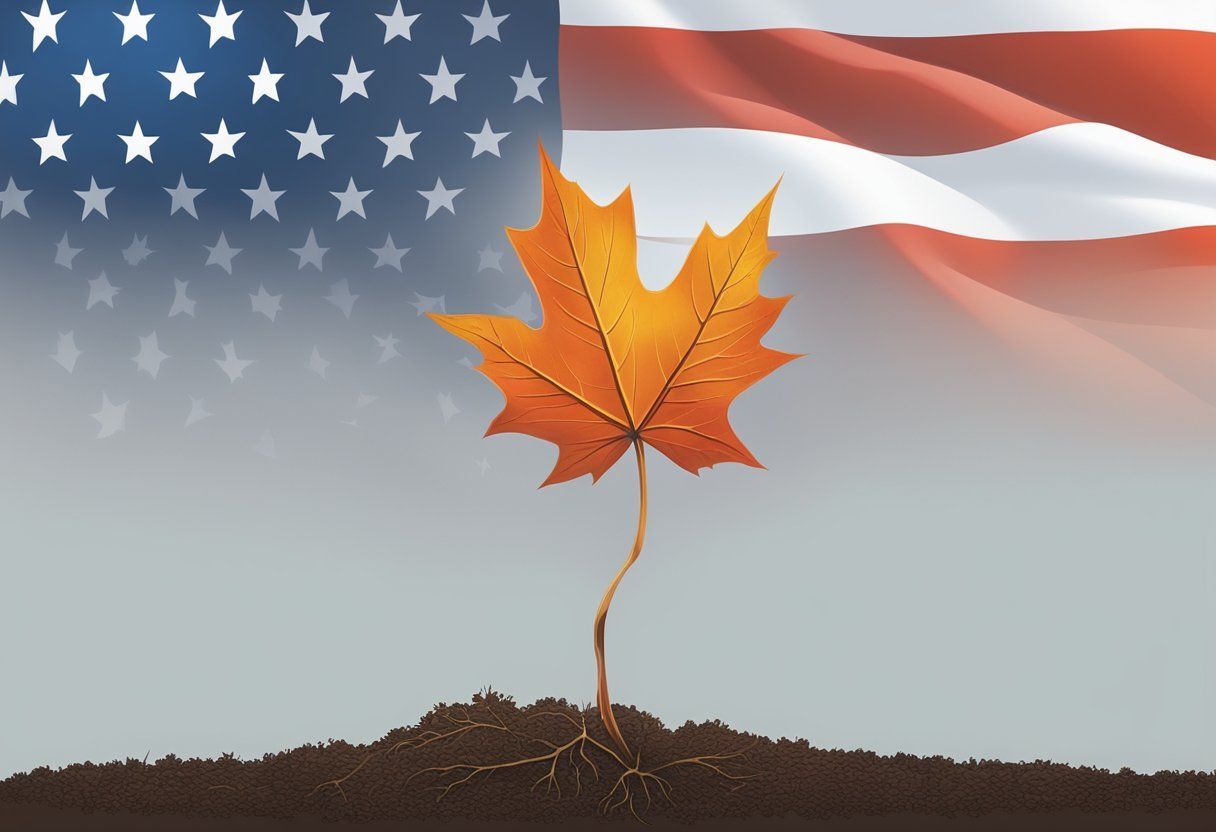Canadian Businesses Find New Growth Opportunities Amid US Tariff Challenges

The U.S. tariffs on Canadian goods have disrupted trade dynamics, but they also present opportunities for Canadian businesses to capitalize on emerging niche markets. Here are some of the most promising areas:
1. High-Quality Apparel
- Canadian exports of wool suits, jackets, and outerwear are now less competitive in the U.S. market due to the 25% tariff. However, Canada’s expertise in high-quality, wool-based garments and specialized outerwear creates an opportunity to pivot toward premium markets in Europe, Asia, or domestic sales. This could also include diversifying into synthetic or cotton-based premium apparel to meet changing global demands [1].
2. Alternative Trade Partnerships
- With the U.S. imposing higher tariffs, Canadian businesses can take advantage of trade agreements like CETA (Europe) and CPTPP (Asia-Pacific) to diversify markets. Products like agricultural goods, packaged food, and textiles are especially well-suited for export to these regions [4][7].
3. Sustainable Packaging and Materials
- Canadian producers specializing in sustainable paper, plastics, and packaging can leverage U.S. tariffs on these products to expand within Canada and into other global markets. For instance, demand for eco-friendly, reusable packaging is rising, creating a niche for Canadian manufacturers to cater to both domestic and international sustainability goals [10].
4. Potash and Agricultural Products
- Despite the 10-25% U.S. tariffs on Canadian potash, the country’s dominance in global potash production, essential for fertilizers, allows it to explore markets outside the U.S., such as Latin America or Asia. Additionally, agricultural export diversification, including premium grains and produce, can target untapped regions [5][6].
5. Renewable Energy and Critical Minerals
- The 10% tariff on Canadian critical minerals and energy products provides impetus for Canada to bolster its renewable energy sector and implement value-added processing for minerals domestically. By investing in solar, wind, and battery production, Canadian companies can develop less U.S.-dependent supply chains while capturing growing global demand for green resources [4][9].
6. Local Manufacturing and Innovation
- With tariffs disrupting supply chains, businesses can focus on domestic manufacturing of goods like steel, aluminum, and automotive components. Localization of production and innovation in advanced manufacturing (e.g., robotics and automation) will appeal to Canadian industries aiming to reduce U.S. reliance [6][7].
7. Luxury and Artisanal Consumer Goods
- Canadian producers can focus on luxury and artisanal goods, including craft spirits, premium foods, and high-end furniture. Tariffs on U.S. competing goods like wine, spirits, and peanut butter create an opportunity for Canadian brands to replace these products in the domestic market [2][4].
8. Technology & Software Development
- Canadian tech companies can position themselves as key players in logistics, supply chain management, and compliance software. As businesses adapt to tariff complexities, there is significant demand for digital solutions that improve efficiency and help navigate trade barriers [6][7].
9. Tourism and Local Experiences
- With tariffs fostering national pride and encouraging "buy Canadian" sentiments, Canadian tourism—from nature-based experiences to cultural festivals—can draw more domestic and international visitors, adding value to the local economy [2].
10. Specialized Support Services
- Legal, trade consulting, and financial advisory services focused on tariff navigation, market diversification, and supply chain diversification have growing potential. Canadian businesses will require assistance in aligning with new trade policies and global expansion strategies [7][8].
11. Canada has introduced substantial financial relief and support programs to help businesses affected by tariffs:
- Export Development Programs: The CAD 5 billion Trade Impact Program offers funding to businesses seeking to reach new international markets, enabling small companies to compete globally [10][12].
- Incentives for Innovation: Funding for technology startups and clean energy projects can help businesses innovate and grow amid economic uncertainty [11].
References:
www.fibre2fashion.com
Disaggregated Analysis of US Tariffs on Canadian Apparel Exports
www.canada.ca
Canada's Response to US Tariffs
www.wernerantweiler.ca
Blog Post on Tariff Impacts
www.bdo.ca
Trade Turmoil: United States Tariffs and Canada's Next Moves
www.thestarphoenix.com
What You Need to Know About Tariffs on Potash
www.doanegrantthornton.ca
How New Tariffs Could Affect Canadian Businesses
www.hicksmorley.com
Tariffs Are Here: How Will They Impact Canadian Businesses?
www.nationalpost.com
Carney Pivots to Day of Meetings in Ottawa Before Latest Round of Trump Tariffs
www.ey.com
Canada Imposes New Tariffs on US Origin Products
www.packagingdive.com
Trump Tariffs on Canada, Mexico: Packaging, Paper, Plastic
www.thepoultrysite.com
Canada Commits Over C$6 Billion to Fight Impact of US Tariffs, Find New Markets
www.canada.ca
Canada's Response to US Tariffs
www.sobirovs.com
Tariffs' Impact on Business Opportunities in Canada
Building better solutions for better business®




